Robert Kagan writes that we have weakened the fabric of the international order that we created after World War II and that served us and others well through innumerable crises. Will America get lucky and avoid a foreign policy crisis while in the midst of a health and economic crisis? This article originally appeared in the Washington Post.
We’ve got a health crisis and an economic crisis. The only thing missing is a foreign policy crisis. So far, this may just be good luck. It happens occasionally in history that natural and man-made catastrophes converge to create even bigger disasters.
The 1918 influenza pandemic came as Europe was still reeling from four years of war. Societies were ravaged, governments were dysfunctional, millions were displaced, hungry, without shelter, on the move. Who knows how much worse the pandemic was because of the conditions created by the war? And who knows how much more difficult it was to recover from the war, psychologically and politically, as well as physically, because of the pandemic?
A more striking example of converging catastrophes came in the late 1920s and early 1930s. The U.S. stock market crashed in October 1929. Eight months later, as the market continued to fall, much of the country was hit by the worst drought in North America in a thousand years. Droughts struck again three times in the 1930s, displacing a half-million Americans and deepening the Great Depression.
But all that was just the beginning. In September 1930, Germans went to the polls and made Adolf Hitler’s National Socialists the second-largest party in the Reichstag. A year later, Japan invaded and occupied the Chinese province of Manchuria, shocking a world that had not seen a cross-border aggression of that size since 1914. Ten months after that, the Nazis became the largest party in Germany and Hitler was on his way to being named German chancellor in January 1933. Everyone knows the rest of the story.
The notable feature of the 1930s geopolitical crises that erupted on top of economic and natural disasters: The groundwork for them had been laid during the mostly peaceful and prosperous decade of the 1920s.
The one power capable of sustaining the peace and bringing some measure of order and stability to both Europe and East Asia had chosen quite determinedly not to take on the burden of such responsibilities. The United States had emerged from World War I richer and stronger than all the rest of the great powers combined. But many Americans, disillusioned by the war, were determined to reject all overseas commitments, no matter how small or limited. They pulled up the drawbridge — closing the door to immigration and imposing ever-higher tariffs on foreign trade — and minimized overseas involvement while maximizing American freedom of action.
This insular nationalist approach helped drive the rest of the world in the same direction. Other countries raised tariff walls in retaliation. The League of Nations was all but incapacitated by the United States’ persistent refusal to engage with it. U.S. relations with even Britain and France, its allies in the Great War, were strained and almost hostile. Ties with Japan took a blow when Congress passed the Asian Exclusion Act in 1924, banning Japanese immigration completely.
The result was a world in which every nation went its own way. While mouthing platitudes about “outlawing war” and signing toothless peace pacts such as the Kellogg-Briand agreement of 1928, the great powers were less and less inclined to work together to preserve the peace, to strengthen a global economy or to establish effective mechanisms of international cooperation. When Japan invaded Manchuria, U.S. officials looked to the League of Nations and then to the British for help containing Japanese ambitions, only to find that the League was impotent and the British uninterested, thanks largely to a decade of American neglect.
The lesson ought to be clear enough. It is when times are good and no grave threats are visible on the horizon that preparations for hard times need to be made. The time to invest in alliance relationships is when they are least obviously needed. The time to strengthen a fluid global economy, with relatively open trade and capable international economic institutions, is when the benefits are least clear. Then, when the disasters unexpectedly but inevitably come, the system is stronger and more resilient, there is more trust in the bank with other peoples, more international capacity to avoid compounding unavoidable disasters with those that could have been avoided.
Perhaps America’s luck will hold and we will avoid a geopolitical crisis this time. But we have certainly not put ourselves and the world in the best position either to prevent or to manage one. Our relationships with allies are poor. We have picked fights with various potential adversaries that may or may not have been wise or justified, but we have not at the same time effectively deterred them from striking out if they choose. We have waged trade wars against allies and adversaries alike. Overall, we have weakened the fabric of the international order that we created after World War II and that served us and others well through innumerable crises. Let’s hope we don’t reap the same harvest as our forebears.
The Brookings Institution is committed to quality, independence, and impact.
We are supported by a diverse array of funders. In line with our values and policies, each Brookings publication represents the sole views of its author(s).

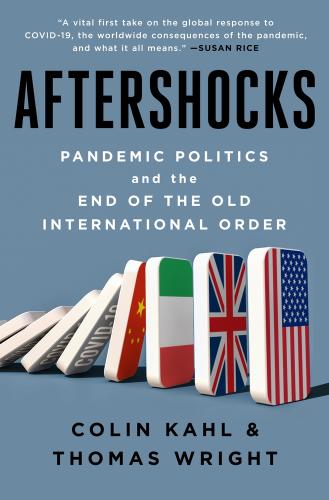
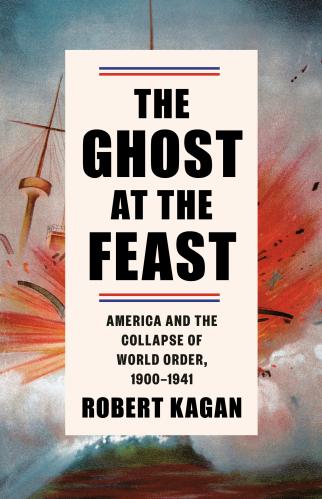
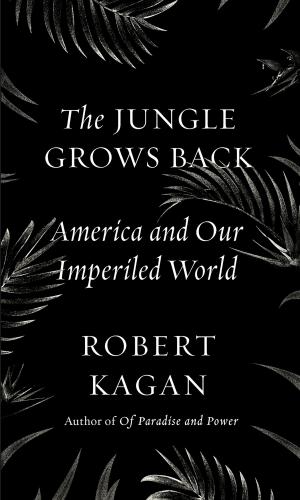

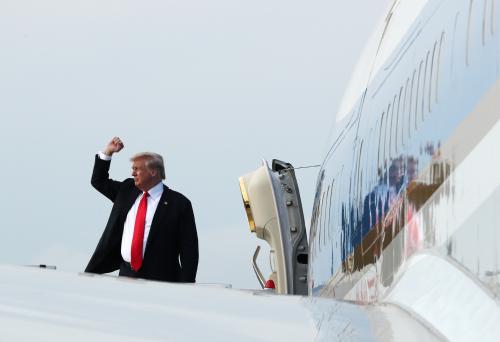
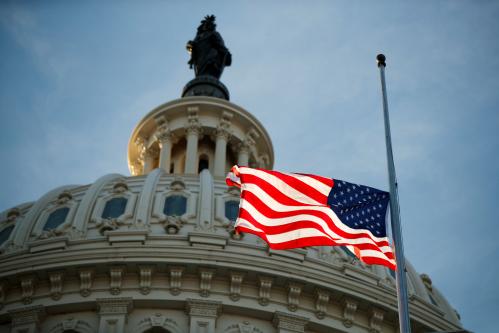
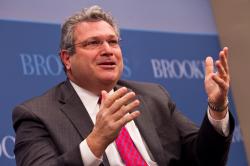



Commentary
We’re a nation all too ripe for another shock
March 29, 2020